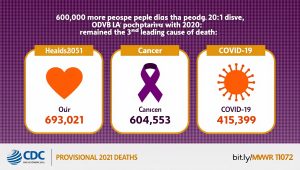
Human Metapneumovirus (HMPV) is a contagious respiratory virus that affects people of all ages, particularly children, the elderly, and individuals with weakened immune systems. In Indonesia, where respiratory infections are prevalent due to the tropical climate and dense population, taking preventive measures against HMPV is crucial. This article provides practical tips to help Indonesians protect themselves and their families from HMPV.
Understanding HMPV
HMPV causes respiratory illnesses ranging from mild cold-like symptoms to severe conditions such as bronchiolitis and pneumonia. Common symptoms include:
- Fever
- Cough
- Nasal congestion
- Shortness of breath
- Wheezing
The virus spreads through respiratory droplets, direct contact with infected individuals, or contaminated surfaces. Given its contagious nature, preventing HMPV requires a combination of personal hygiene practices and community efforts.
1. Practice Good Hand Hygiene
Regular handwashing is one of the most effective ways to prevent the spread of HMPV. Follow these steps:
- Wash your hands with soap and water for at least 20 seconds, especially after coughing, sneezing, or touching public surfaces.
- Use hand sanitizer with at least 60% alcohol if soap and water are unavailable.
- Teach children proper handwashing techniques to instill good hygiene habits early.
2. Wear Masks in Crowded Places
Wearing masks can significantly reduce the spread of respiratory droplets that carry HMPV. This is especially important in:
- Public transportation
- Markets and crowded spaces
- Healthcare facilities
Encourage family members to wear masks if they show symptoms of respiratory illness to protect others.
3. Maintain Cleanliness at Home
Keeping your home clean can minimize the risk of HMPV transmission:
- Disinfect frequently touched surfaces such as doorknobs, light switches, and mobile devices.
- Ensure good ventilation by opening windows to allow fresh air circulation.
- Wash bedding, towels, and clothing regularly, especially if someone in the household is sick.
4. Avoid Close Contact with Sick Individuals
Limiting close contact with people who have symptoms of respiratory illness can help prevent HMPV. If someone in your household is sick:
- Keep a safe distance and avoid sharing personal items like utensils or towels.
- Encourage the sick individual to rest in a separate room if possible.
- Use disposable tissues and discard them immediately after use.
5. Boost Your Immune System
A strong immune system can help your body fight off infections, including HMPV. To maintain good immunity:
- Eat a balanced diet rich in fruits, vegetables, and whole grains.
- Stay hydrated by drinking plenty of water.
- Get regular exercise to improve overall health.
- Ensure adequate sleep to allow your body to recover and recharge.
6. Stay Informed
Awareness is key to prevention. Keep up-to-date with information about HMPV through reliable sources such as the Ministry of Health or healthcare professionals. Early recognition of symptoms can lead to timely medical intervention, reducing the risk of severe complications.
7. Seek Medical Attention When Necessary
If you or a family member experience severe symptoms such as difficulty breathing, persistent high fever, or extreme fatigue, consult a healthcare provider immediately. Early diagnosis and treatment can prevent complications and improve recovery outcomes.
Conclusion
Preventing HMPV in Indonesia requires a proactive approach that combines personal hygiene, community awareness, and healthy lifestyle choices